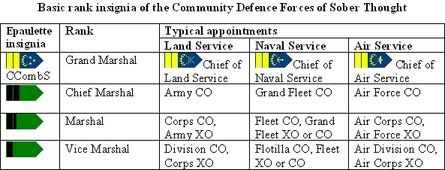Community Vessel Transport
| Naval Service Community Vessel | ||||||||||||||||||
|---|---|---|---|---|---|---|---|---|---|---|---|---|---|---|---|---|---|---|
| ||||||||||||||||||
|
| ||||||||||||||||||
In order to fulfill its primary function of transporting Land Service troops of the Community Defence Forces, the Naval Service operate three large troopships for each one hundred million population of Sober Thought. They are named T-1 through T-3 in the first batch, the second T-3 through T-6, etc.
Although by international law they are considered warships, they have minimal defensive armament and rely on their escorts like cruisers, destroyers and frigates. They must dock in a friendly harbour. For landings on hostile shores, the Community Defence Force uses smaller but more heavily armed landing ships which have more equal portions of naval, air and land service personnel.
When acting as troop transports, the ship can embark up to 5 000 soldiers, their vehicles and equipment. If supported by several health battalions, the ship can operate as a floating hospital for half that many soldiers. With even fewer troops and more bulk supplies, the ship can act as an emergency relief ship for international aid missions.

